Tag Archives: environmentalists
With the Ocean Wind Offshore Wind Farm on the horizon, a storm is building
Ocean Wind, according to those closely following the project, is headed for a series of turf wars, loud debates and protracted legal battles, even before the first turbine is sited off the coast of southern New Jersey.,, even supporters and opponents of the proposed wind farm at times disagree among themselves on how to move forward. Environmentalists, commercial fishermen, recreational boaters, labor unions, homeowners, boardwalk businesses, NIMBYs and ratepayer advocates are all circling Orsted, the Dutch wind power company behind what could be one of the largest wind farms in North America. Local, state and federal officials are also starting to feel the heat. Just about everyone involved, including David Hardy, CEO of Orsted US, worries the project could devolve into chaos. >click to read< 13:11
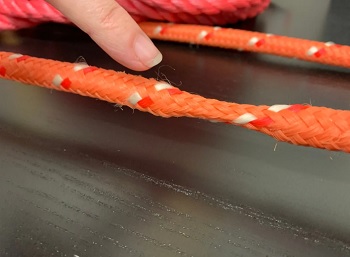
Lobstermen say proposed Right Whale rules are expensive, dangerous, and based on outdated data
During the final public hearings, Maine Department of Marine Resource Commissioner Patrick Keliher echoed a statement put out by Gov. Janet Mills earlier that week stating that “a one-size-fits-all approach in the state of Maine will not work.” Fishermen and environmentalists voiced concerns over the science federal regulators were using to make decisions, including the number of right whales alive today, how many have been harmed by entanglements or struck by ships and the effectiveness of proposed gear changes. “We all agree on one thing,” said Matt Gilley, a Harpswell lobsterman who spoke up at the virtual meeting. “That is that the data is flawed. In what direction, that remains to be seen.” >click to read< 11:10
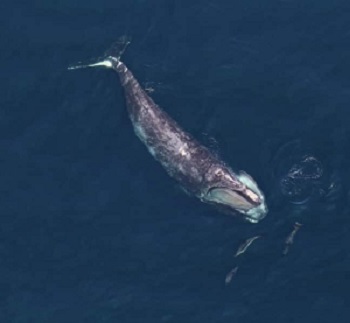
Enviro’s Lukewarm Reception For Canada Modifying Right Whale Protections
The Animal Welfare Institute has responded to the Canadian government’s recent decision to modify right whale protections, specifically concerning how they affect lobster and crab fishers. On the one hand, the institute welcomes and applauds the government commitment to “Whale Safe” ropeless fishing gear. However, it does not accept the promotion of weaker rope lines as a long-term solution for entanglement. >click to read< , with a link to the policy they oppose, unreasonably. 18:06
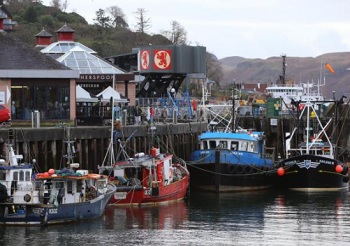
The war over scallops and the future of sustainable fishing in Scotland
Just sixty tonnes of the species were landed at Scottish ports in 1960. In 2019 the equivalent figure topped 15,000 tonnes, down 2% from 2018 but still worth nearly £36m. The boom, however, has sparked a sometimes bitter clash between enviros and the fishing industry over how scallops, which grow on the seabed, are harvested. Diver-fishermen and campaigners say dredgers are effectively ploughing through delicate marine environments to create a scallop monoculture off the Scottish coast. >click to read< 08:30
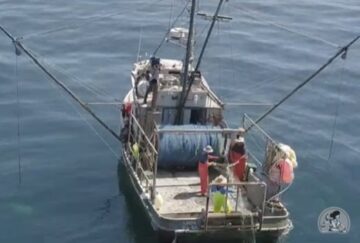
Blue collar fishermen deserve to make a living, not persecution from weak minded politicians and wealthy enviros
Austen Brown started fishing commercially with his father off California’s coast when he was only 8 years old. By the time he was 13, Austen was making his own living as a fisherman, and he has spent the past few decades fishing for everything from codfish to shark. But perhaps his favorite target is the elusive swordfish.,, The swordfish is also a favorite catch for Chris Williams, who has spent more than 40 years plying his commercial fishing trade off the California coast, including targeting swordfish with drift gillnets. Tragically, California’s drift gillnet ban comes at the expense of the fishermen and their families who will be put out of business for no good reason. Video, >click to read< 08:34
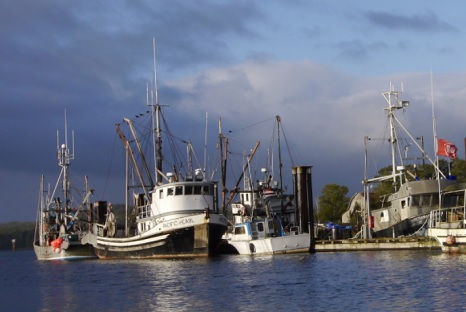
Advocates say B.C. needs a fisheries minister
Each year, about 196,000 tonnes of seafood, everything from salmon to scallops, is harvested off the B.C. coast. But unlike its East Coast counterparts, the province doesn’t have a fisheries minister. In the past several decades, the province has seen tumbling salmon populations, an increasingly inequitable distribution of the fisheries’ economic benefits and a drop in local processing capacity. All have eaten away at coastal communities, and the province’s ability to feed itself from the sea, a situation that advocates say calls for a minister dedicated to the portfolio. >click to read< 18:38
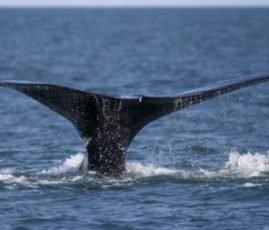
North Atlantic Right whale trouble: Lawsuit on protections could last for months
Environmental groups sued the U.S. government with a claim that regulators’ failure to protect the North Atlantic right whale from harm was a violation of the Endangered Species Act, and U.S. District Judge James Boasberg ruled April 9 that they were right. The government, environmentalists and industry members who are involved in the lawsuit must still return to court to determine a remedy. Boasberg ruled that the risk posed to the whales by the lobster fishery was too great to be sustainable, and that a remedy could ultimately result in new restrictions on lobster fishing. Members of the industry, including the Maine Lobstermen’s Association, have vowed to fight to protect the fishery. >click to read< 11:27
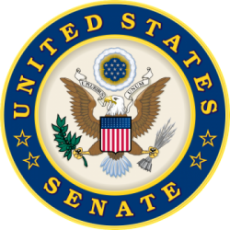
Senate Democrats, Greens Seek Climate Mandates In Federal Stimulus Bills
Senate Democrats and environmentalists want to tack climate change mandates onto proposed federal aid to major airlines and cruise lines reeling from the coronavirus pandemic. In a letter to the House and Senate leadership, eight Senate Democrats said last week that any financial assistance to the travel industry “should be paired with requirements that companies act in a more responsible fashion” by reducing their carbon footprint. “Climate change damages will wreak havoc on a scale even greater than the coronavirus,” said the Friday letter headed by the Center for Biological Diversity. Democrats who signed the letter were Sens. Sheldon Whitehouse of Rhode Island, Martin Heinrich of New Mexico, Jeffrey Merkley of Oregon, Cory A. Booker of New Jersey, Edward Markey of Massachusetts, Richard Blumenthal of Connecticut, Tina Smith of Minnesota and Debbie Stabenow of Michigan. >click to read< 10:12
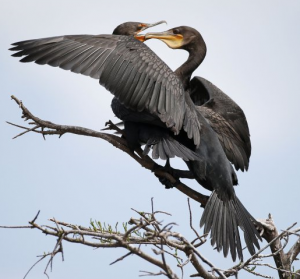
Environmentalists are dragging us back to the Dark Ages
In the early 1990s, our small group of Potlatch employees in cooperation with members of the Lewiston and Clarkston chambers of commerce were researching environmental claims that the lower Snake River dams were devastating salmon runs, when we learned about East Sand Island, a man-made island in the estuary of the Columbia River. The island was formed from dredging deposits in 1983 and by 1984, Caspian terns, cormorants and gulls had colonized the island and were feasting on salmon smolts. We thought: “Wow, this is an easy fix. Tear out a man-made island and save millions of endangered fish.” The environmentalists beat us to the punch. They filed in federal court to protect the island and the birds under the Migratory Bird Treaty Act of 1918. Now we have the largest nesting colony of these non-endangered birds in the world on a man-made island. by Marvin Dugger >click to read< 09:50
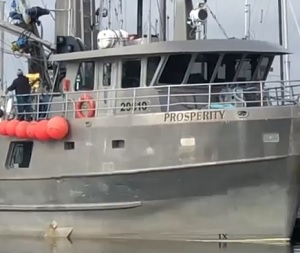
Vancouver Island: Controversy grows as herring fishery approaches
Anticipation is growing in French Creek’s harbour as herring boats began to fill it Wednesday ahead of the fishery opening. The opening could be any day. Fisheries and Oceans test boats have already recorded herring returning to spawn. “Could be any minute now, you know Mother Nature is temperamental,” said Captain of the Pender Isle Jason Roberts. Video, >click tp read< 12:32

Federal regulations to protect right whales are delayed until at least this summer
Officials at the National Oceanic and Atmospheric Administration, which is responsible for protecting the critically endangered species, had planned to issue the regulations last year. But they were delayed after months of criticism from the region’s powerful lobster industry, which is worried that new requirements could be harsh and expensive. >click to read< 18:03
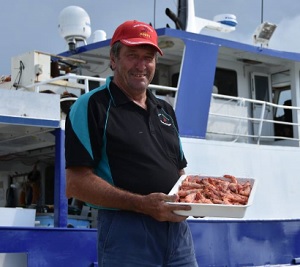
The Best North Queensland seafood available for Christmas
Fishers are encouraging families to include wild caught Australian seafood in their festive feast in a bid to prop up the industry amid regulatory green-tape.,,, “There is that much pressure on the fishing industry, that for some the future is looking pretty bleak,” Mr Dansie said. “The biggest things is that if people want to have real Australian seafood they need to keep buying and supporting us.” >click to read< Support your fishing industry! 15:34
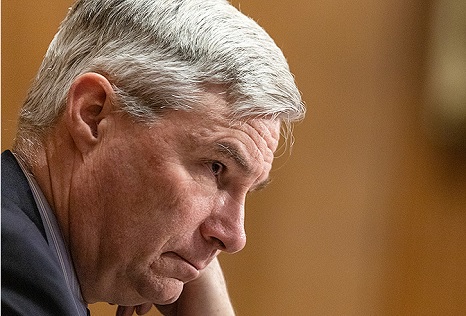
Top climate hawk bashes first big offshore wind project. Sheldon??
For the past seven years, Sen. Sheldon Whitehouse has given a weekly address about the dangers of climate change. Increasingly, some greens wonder if he is full of hot air. The Rhode Island Democrat, one of the Senate’s top climate hawks, has emerged as a leading critic of Vineyard Wind, an 84-turbine offshore wind project proposed in federal waters 15 miles south of Martha’s Vineyard.,,, Whitehouse’s statements echo concerns of Rhode Island squid fishermen, who have emerged as leading opponents of Vineyard Wind. >click to read< 12:21
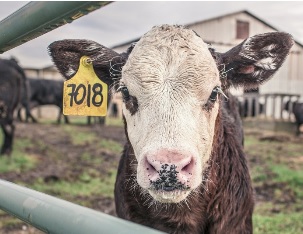
Climate Alarmists Propose Feeding Cows Seaweed To Lower Methane In Farts
Environmentalists intent on finding new ways to reduce so-called greenhouse gas emissions to curb climate change have proposed a novel method: feed cows seaweed to diminish methane in flatulence, belches, and manure. Ermias Kebreab, a zoology professor at the University of California–Davis, led a team in producing a bovine meal regimen containing varying levels of Asparagopsis armata, a strain of red seaweed, and fed it to 12 dairy cows over a two-month period. >click to read< 20:31
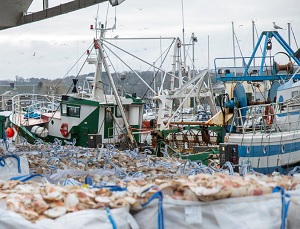
Fines to rogue fishermen fall and illegal fishing escapes prosecution, environmentalists claim
Concerns have been raised recently that fishermen are increasingly involved in illegal scallop dredging and prawn trawling to supply a black market in seafood, at the expense of Scotland’s marine environment.,,, Environmentalists claim that the Scottish Government is not treating damage to MPAs by boats as “serious crimes”. They have accused the official body tasked with protecting seas, Marine Scotland, of failing to take tough enforcement action against skippers breaking the law. >click to read< 13:54
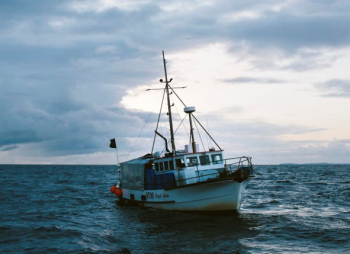
The New Zealand fishing industry is fighting back against claims its newspaper advertising campaign is “spin”
It is true that the seafood industry is in fighting mode, as evidenced by a series of full-page ads we are running in the Dominion Post and the New Zealand Herald. However, there is a very good reason for that. Hundreds of small, family-owned fishing businesses are at stake if a review of the Hector’s and Māui dolphin Threat Management Plan sees tougher rules introduced.,, And for what? there has been no death of a Māui dolphin attributed to commercial fishing since 2002.,,, the biggest threat to the Māui is not fishing. It’s toxoplasmosis, a parasitic disease found in cat faeces,,, >click to read< 09:36
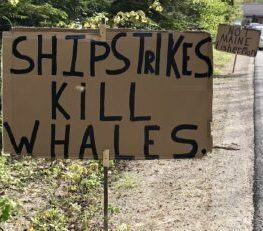
Lobstermen, environmentalists weigh in on right whale rules
Some of the largest and most powerful animal and environmental groups – including the Pew Charitable Trust, the U.S. Humane Society, the Conservation Law Foundation and Oceana – sent representatives to the hearing. They urged National Marine Fisheries Service to take immediate action to protect the whale, including proposals that even the team tasked by the fisheries service to come up with its whale protection plan had dismissed, such as offshore closures and ropeless lobster fishing. >click to read< 20:58
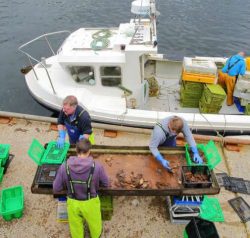
Lack of Trust muddies the water in UK fishing industry, (it muddies all waters, not just in the UK)
A survey of UK fishermen has revealed low levels of trust in key government organisations and scientists. The authors of the study say it is an area that urgently needs to be addressed for a successful fishing industry after Brexit. The study, (another hypothesis) by researchers (someone doing their Masters) at the University of York, involved a questionnaire designed to examine how well fishermen working in the UK fishing industry trusted key governing bodies, scientists and environmental groups. The researchers found low levels of trust in nearly all the institutions included in the survey. This is likely to be down to poor communication, political interference and discontent with the EU’s Common Fisheries Policy, the authors suggest. (The authors are biased towards management, actually, so unless you’re an EDF fisherman, none of this makes sense. >click to read< 13:05
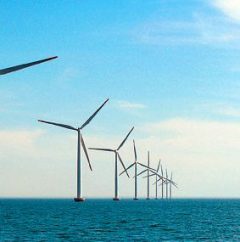
Chill Wind Of Reality Blows Through The Green Energy Lobby
In recent weeks, some observers of the energy scene have been wondering if the long honeymoon of the renewables industry might finally have come to an end.,,, This is all very different to a couple of years ago when the wind industry and newspapers started shouting, in unison, that a new era of offshore wind was on the way. While a few spoilsports pointed out that there was almost certainly less to these announcements than met the eye, and wondered how exactly these alleged cost savings were to be achieved, the hype continued unabated. ,,, All this means that many environmentalists have pinned their hopes on offshore wind. There’s plenty of space out at sea, there are no neighbors to object, and the industry is saying that prices are going to drop through the floor. >click to read<13:08
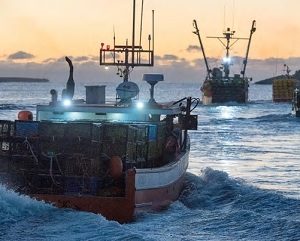
Bill C-68 will protect smaller inshore fishery operators from corporate takeover, group says
Trudeau government legislation that enshrines the independence of Atlantic Canada’s inshore fishing fleets and enhances protections for fish stocks and fish habitat has cleared the Senate. The news is a relief to Martin Mallet. “This is great news. We’ve been waiting for this for a long while,” said Mallet, executive director of the Maritime Fishermen’s Union.,,, Minister expects new Fisheries Act to pass. In North Vancouver, federal Fisheries Minister Jonathan Wilkinson also welcomed the Senate vote. >click to read<12:06
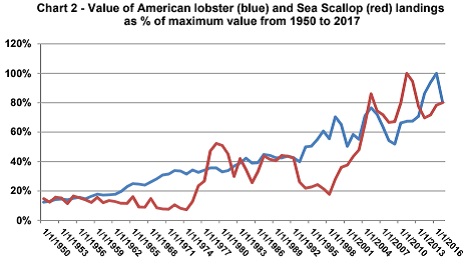
After over forty years of NOAA/NMFS management how are we really doing? Nils Stolpe
The Magnuson-Stevens Fishery Conservation and Management Act – I have seen the focus of government fisheries manage-ment increasingly shift away from the fishermen to the fish. The provisions of the Act as it was originally written were put in place to allow the U.S. fishing industry to regain control of the fisheries in the United States’ highly productive coastal waters,,, The legislation was singularly effective, so effective that within ten years or so of its passage the greatest portion of our domestic fish and shellfish production was being harvested by U.S. fishermen on U.S. vessels. This success was sold to the U.S. public – and the U.S. politicians – as an assault on the “sanctity” of our coastal waters by a burgeoning environmental industry that was (and still is) engaged in non-governmental empire building. This has resulted in a handful of multi-national ENGOs (Environmental Non-Governmental Organizations) that have become at least as influential as the fishing industry in national and international fisheries management. >click to read, and review the links and graphs<16:10

Governor Baker touts promise of wind power, new technology
New York recently set a long-term goal of generating 9,000 megawatts of energy from offshore wind power, while New Jersey plans to build 3,500 megawatts. But Massachusetts is seeking to produce just 1,600 megawatts, a target critics say is too modest. Some environmentalists had hoped that Governor Charlie Baker would announce a loftier goal Wednesday at a forum in Boston about the future of offshore wind power.,,, Baker also spoke of the need to ensure that wind farms don’t place an undue burden on the region’s fishing industry. >click to read<13:38

Misguided Opposition to Wind Farm? The rambling random notions of an unhinged crack pot.
As we face multiple global ecological crises, magnified by climate change, it is puzzling, even frightening, to see opposition to one of the major and already functioning forms of renewable energy, especially from the marine resources community. One would think that this community was completely ignorant of the proven threats of oil tankers to our fisheries and estuaries, or of the overfishing of food fish, or the destruction of coastal estuaries, the fish breeding grounds, for condominiums, hotels, resorts and other incompatible uses, or the polluting runoff from farms, sewers, cesspools and industry. The commercial fishing community has long sat on the sidelines as environmentalists fought the good fight to preserve ocean life.,, >click to read<10:19
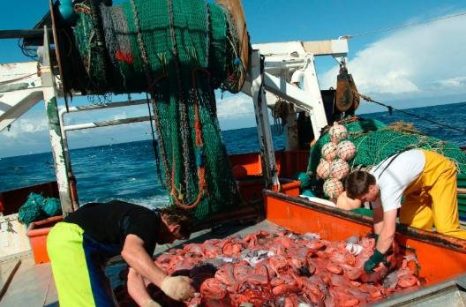
Bottom trawling for orange roughy has scientists worried
Three of the nine fisheries within New Zealand waters were recently deemed sustainable once again. But it is bottom-trawling for orange roughy on the high seas – the area out beyond the 12 nautical mile limit of New Zealand and Australia’s exclusive economic zone – that has scientists and conservationists worried.,, Experts call them “vulnerable marine eco-systems” (VMEs) but some in the fishing industry even object to the term as “unscientific and akin to labelling fishermen as murderers”. These tensions led to protracted wrangling about how best to protect the South Pacific’s orange roughy and that has now culminated in threats of legal action from New Zealand’s powerful fishing industry interests. >click to read<13:45
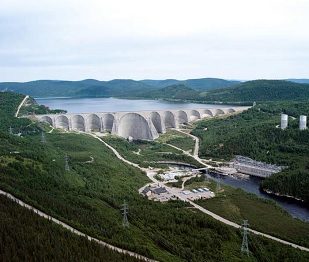
New England Enviros Are Protesting A Clean Power Project!
Environmentalists in New England are voicing concern over a proposal that would provide an abundance of clean hydropower, hundreds of jobs and millions of dollars in revenue every year. Charlie Baker, the moderate Republican governor of Massachusetts, has worked relentlessly to reduce his state’s carbon footprint and is now looking to Canada for renewable energy sourced from a series of dams.,, If completed, the arrangement would power 1.2 million homes with 1,200 megawatts of low emission hydropower and reduce overall energy costs. >click to read<11:48
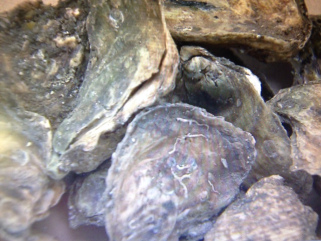
Billion Oyster Project – Environmentalists, Scientists Pledge 10 Billion Oysters By 2025, Watermen Skeptical
Drilling away, waterman Guy Spurry was working hard on Monday – not oystering – but building his boat. And in Annapolis the same morning, scientists and environmentalists say a new plan will have them working hard too. That plan – to bring 10 billion oysters to the Chesapeake Bay by the year 2025. Spurry says he’s skeptical. “It may work and it may not. It’s just a guessing game and it cost a lot of money to play these games,” Spurry said. It’s a money game that some argue needs to be played. >click to read< 18:31
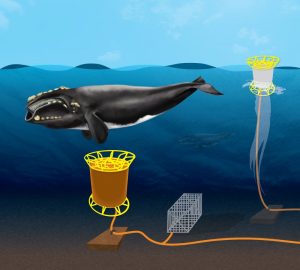
Cape Cod environmentalists plan to wreck their lobster Industry to save the whales
Scientists trying to convince New England lobstermen to invest in “ropeless fishing” to cut the risk current fishing methods pose to northern right whales, The Boston Globe reported. Scientists at the Woods Hole Oceanographic Institution say ropeless fishing will allow lobstermen to continue in their livelihood, but without long ropes running from buoys on the ocean’s surface to lobster traps on the ocean floor.,,, Scientists warn if this technology is not pursued, the only other option to save the whales is government regulation of fishing seasons and areas, which would devastate the industry much more than ropeless fishing. >click to read< 09:07






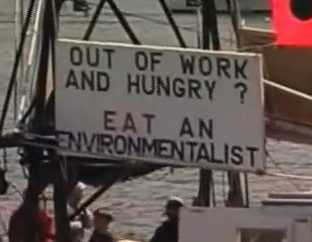
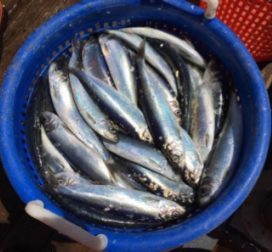





























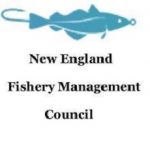

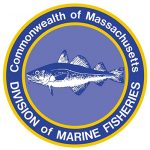
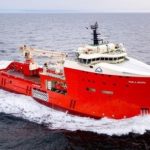
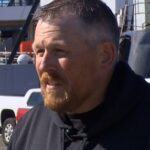
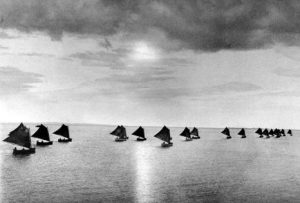
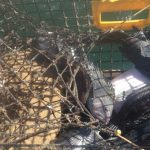
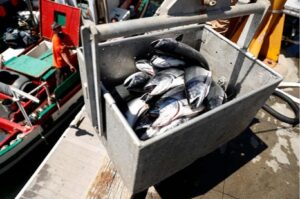
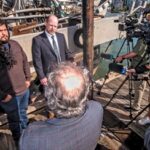




Its Deadline for Comments Day on South Fork Wind Farm Environmental Report
BOEM, which recently finished its draft environmental review of the South Fork Wind Farm, gave the public a chance to weigh in on the document at three virtual public hearings in mid-February, and is accepting further written public comment through midnight tonight… Meghan Lapp of Seafreeze Ltd. in Narragansett, Rhode Island, “Our vessels will have to fish in the area, which will be impossible if this goes through as planned,” she said, adding that the DEIS “does not contain any cumulative impact analysis” of how the offshore wind industry will affect the fishing industry. Bonnie Brady of the Long Island Commercial Fishing Association, based in Montauk, agreed with Ms. Lapp, adding,,, >click to read< 12:05
Share this post